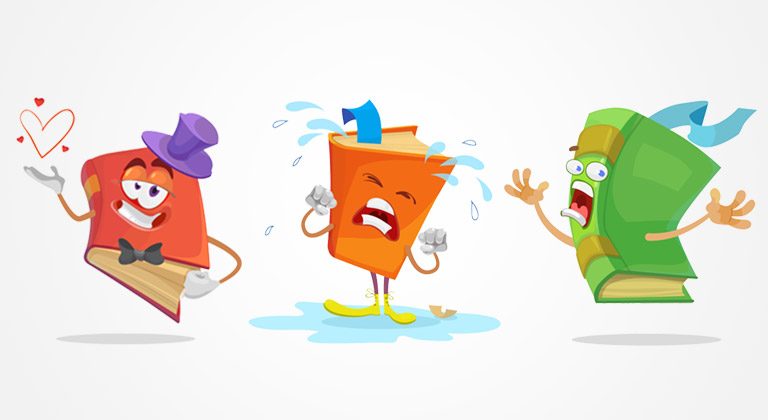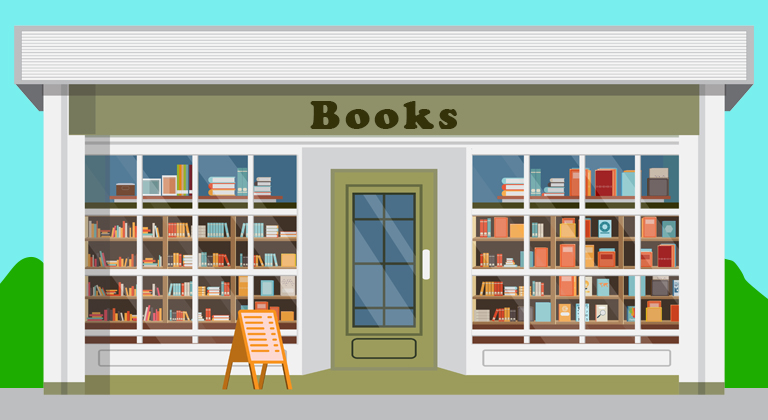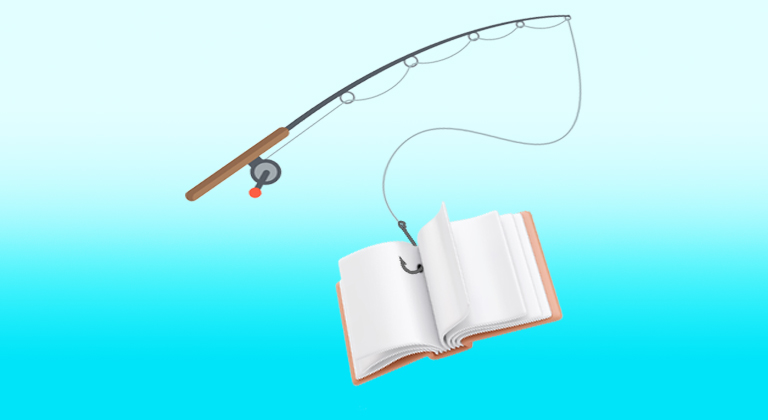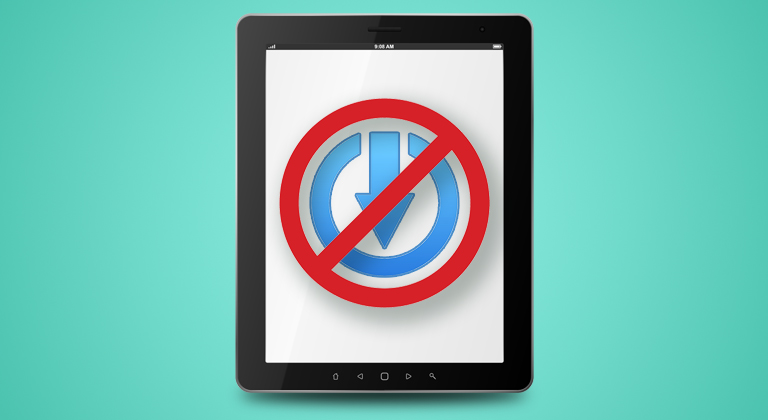Writing Tips Worth Carrying Around
If there’s one thing that the internet excels at, it’s spreading misleading or even false information. There is so much misinformation floating around that independent authors are often led down the wrong path even after they’ve done their best searching for the right one. Best-selling author Stuart Thaman spends a lot of his time advising authors via his own blog or the writing forums he helps moderate, and he was kind enough to put together a list of tips that correct many of the most popular misconceptions he’s heard. While our blog has covered some of these in the past, it’s very useful to have them summed up so succinctly in a single post—and the addition of many points we haven’t yet covered makes this list worth reading not only for new authors, but more established ones as well.
I see a lot of the same mistakes being made everywhere. Reddit, FB author groups, real life—the mistakes are always the same.
Here’s a quick guide to help newer authors avoid the most common pitfalls that I see all the time.
Never pay to be published.
That’s basically the first rule of publishing. Money flows to the authors when you are “being published” by a press or some company. You don’t pay for anything.
Self-publishing is not free.
Might seem contrary to the first point, but it isn’t. If you’re doing things on your own with a company like Amazon or Ingram, pushing the buttons is technically free, but producing a professional product is not free. You’ll pay for things like editing, cover, formatting, and ISBN, maybe more, and all that costs money.
If you build it, they will come does not apply to books.
A lot of writers have the notion that if they publish a book, that book will sell. Not true. Without marketing, your book will do nothing.
“My friend with an English degree edited my book” is a bad idea.
Friends are not professional editors. Editing is also not a fly-by-night skill. With few exceptions, we need pros to make professional products.
Read the Copyright Office’s (or whatever your country’s equivalent is) rules for copyrights.
Firstly, there’s no such thing as a ‘poor man’s copyright’ despite how many people think there is. Read the laws. Copyrights in the USA are free and automatic. Along those lines, here is a useful discussion on ISBN options (for the USA).
Book trailers are generally ineffective.
That doesn’t need a whole lot more clarification. In almost all cases, book trailers are a waste of resources.
Don’t spend more than a pittance marketing your debut.
It won’t apply to all cases, but to most. Marketing your debut book with no backlog is a surefire way to run a starkly negative ROI. As a general rule, make fans on book 1, then money on books 2+. Start marketing heavily when you have 3+ books launched.
The day of the week you launch is meaningless.
I see this one a lot. People think Tuesday is a magical day for book launches. It is not. Marketing sells your book, not the position of the moon or any other such bullshit.
Don’t focus on media options or distribution deals.
A lot of new authors seem to be obsessed with selling media options or securing big money financing deals. Obviously, that works out well for some indie authors. But not most. And the more time you spend trying to sell the option to a book with mediocre sales, the more precious writing time you waste. If you sell enough copies, people will come to you looking for those options and deals. Do it that way.
Writing to market can be a great sales booster.
What that means is following micro- or sub-trends within your genre. It does not mean switching genres altogether to chase the profits. If you are good at writing horror, don’t jump into historical romance just because you think that genre is your golden ticket. There are no golden tickets.
Romance and erotica are not golden tickets.
I see a lot of authors online and at conventions bemoaning poor sales and then blaming it on a lack of sex in their novels. That’s incongruous. You don’t need sex to sell genres that aren’t about sex. Something else is hamstringing your sales. Probably your marketing (or more likely lack thereof).
Bucking the system is generally a bad idea.
What does that mean? Covers wildly out of norm for your genre and writing styles more like Cormac McCarthy or James Joyce fail for 99% of people that try them. Not trying to stifle creativity, but know your limits. Do weird stuff once you have an established base. It’ll pan out a lot better that way.
Rapid release schedules work and are possible.
Launching 4+ novels in a year genuinely works to keep momentum going. And it is possible. If you write every day, you’ll hit your goals. If you have good grammar skills and produce clean first drafts, you’ll go even quicker.
Study your genre. Learn from other books.
I can’t say how many authors I’ve met who don’t read. They “don’t have time” or some other excuse. That’s insane. Sports teams spend hours each week watching tape and learning from it. Reading books in your genre is the same thing. Read them and learn from them. Use the literary analysis skills you hopefully acquired in high school to constantly get better.
No one is going to steal your book / ideas, especially not editors and the like.
I see this one all the time as well. People sign unnecessary non-disclosure agreements and all sorts of other things protecting their ideas and work from editors and illustrators. Think for a moment how much work and how little reward that would be for the offending party. It flat out doesn’t make sense. Not even a little bit. Sure, keep your contracts if you like (that’s quick and easy, after all), but don’t lose sleep over it.
Don’t click the ‘Contains Adult Content’ box on KDP.
Unless you’re writing some truly heinous stuff, you don’t need to click that box. Curse words, child abuse, standard horror elements, etc. don’t meet the criteria that Amazon is looking for with that box.
Don’t get your friends and family to buy your book unless they already read your genre.
This happens all the time. An author publishes (for example) a sci-fi novel and immediately sells a hundred copies to friends and family. Then their sales fall off a cliff. Hard. The reason? The ‘also bought’ section below the book’s listing is all messed up. Mom and 3 aunts bought the book to support the author, but they read cozy mystery, cookbooks, and Dr. Who fanfic erotica. Not sci-fi. But Amazon doesn’t know that, so the algorithm just breaks. That can seriously ruin an otherwise decent launch.
Newsletter marketing is one of the most powerful tools you can have.
Get a newsletter pronto. Put a sign-up with a loss leader in the back of all your books. Organize newsletter feature swaps with other authors in your genre. Subscribe to other newsletters in your genre to see what their newsletters look like. Imitate the best ones. Make sure yours is hyper professional.
Poetry is not dead.
Along those lines, yes, some genres are easier or harder to sell. Sure. But I see the notion all the time that ‘poetry is dead’ and other such claims. The world of insta-poets proves that wrong. You can market just about any genre, you just have to know how.
Format your em dashes correctly.
Probably the most common mistakes I see in indie novels (speaking to American English) are poorly formatted em dashes. Look up how to use them—and don’t put spaces on either side.
Apostrophes are used for possessive and not for plurals.
I see this all time as well. Such a glaring mistake. Decades are almost never being used in the possessive. “I enjoyed the 90’s,” is simply wrong.
I’ll conclude with the 3 best pieces of advice I ever learned in my writing career.
The first comes from Mark Steyn. He’s a massively successful writer and also happens to be a professor at my alma mater where I met him. His advice is simple: you have to fall in love with words and grammar. That’s true. Unique and varied word choice—and not just vomiting big words on a page—is where a lot of the masters like Stephen King tend to stand above the rest. Interesting grammar and syntax serve to bring stories alive as well.
Advice #2 comes from writer AJ Scudiere who I met once at a conference: write a practice novel. Don’t publish your first attempt. That’s true for just about everyone, and I wish I had learned it before publishing my very first novel…
And my third piece of advice comes from some cheesy IG post or Twitter or something. I don’t remember exactly, but here it is: if you want to find time to write, throw your phone in the ocean. The quote is getting at the concept of removing distractions. If you want to write and want to write on a rapid release schedule, you need to actually do it. That means removing time from other pursuits. Maybe you don’t get to binge Stranger Things every other weekend. Maybe you cut back on sleep by an hour or 2 each night. Set your goals and actually go out and do them. No one is too busy to write a novel. Many people, however, have other priorities and then blame their lack of writing on being busy.
I hope that helps.












goldmine of useful info here. Not just this post but your entire marketing advice series. I’ve spent days and days slogging through websites with paywalls, or ones with outdated information, or both. Then there’s the hyper specific tips that worked for that one person for some particular reason. Mostly they are useless by virtue of being non-reproducable for the average person. And don’t get me started on the get-rich-quick style clickbait YouTube videos. Those seem to be great for validating the creator’s ego and generating views but not much else. Then I stumbled on a reply on a kdp community forum where, almost like an afterthought, you posted this ridiculous gem of a blog by saying “Oh by the way, here’s everything I know about marketing.” Definite mike drop moment for you.
Anyway I’m rambling, but hopefully you are getting the point that I appreciate your content and your honesty. No one seems to want the truth, they prefer dreaming the big dreams of pushing out low content bull crap and spontaneously skyrocketing to success. But those of us that want to put in the work and actually enjoy producing content and learning about this business, would do well to bookmark your blog and refer to it often, as I have. Thank you.
I agree with all of these except the dashes. You can format with or without dashes and both are correct, just stay consistent. AP style says to use the spaces.
I would argue that with ebooks, WITH space gives a much better finish. if you have a longwordlikethis—andnospacebeforenext you get some really ugly and hard to read formatting.
Thank You for the writing tips!
They’re great and very useful.
Great list! Very useful and I’m not a newbie–have 40 novels/novellas published. Learned a few of the things the hard way.
Thank you for sharing.
Completely agree with: Read/learn in your genre. I’m a HUGE romance reader as well as writer. In fact, I’d write more/faster if I wasn’t reading so many great books. But I understand the genre. HAVE to be a reader where you write, imho. Great blog post!!!
THANK YOU for pointing out the em-dash problem. Many U. S. newspapers use the UK style, with spaces, but it is NOT U.S. style for books.